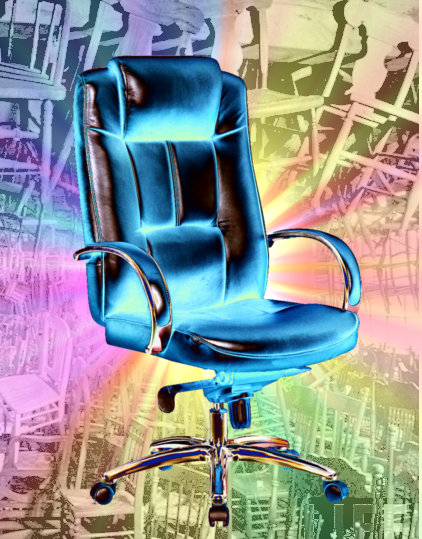Smart chairs and talking sofas for proactive OHS
 Australian researchers want to ease the burden of back pain with their new invention – the smart chair.
Australian researchers want to ease the burden of back pain with their new invention – the smart chair.
Monash University engineers have developed office furniture that can tell a worker whether they are sitting correctly, when to get up and move around and, even compare notes with the furniture at home.
They envision a future where an office chair monitors a person’s spine throughout the day and sends adjustments back to the sofa at home, so that it can adjust to the perfect position for the evening.
The team hopes its advanced smart chair will make the office and workers safer and healthier.
The standard in current OH&S is to take preventative measures such as keeping chairs, desks and computers at the right height, but the Monash team says technology can create a proactive response, fixing problems before they occur.
The need is profound; a 2007 study by Access Economics estimated that back pain costs the economy $34.3 billion in lost workplace productivity and treatments.
Director of the Monash University’s International Tangible Interaction Design Lab, Dr Steven Jia Wang says his own back pain – and his expensive search for a good office chair – was the inspiration for what he calls “the virtual spine”.
At this stage, Dr Wang’s test chair looks like an ordinary office chair with a mess of electrical wires running between a central system and 78 pressure sensors in the chair’s seat and backrest pads.
The sensors detect the varying loads exerted by a person’s back and legs as they sit.
This information is logged, analysed and compared with “ideal” spinal positions. Then, after the individual user’s anatomy, usual posture and current problems have been factored in, the central system sends out advisory texts or emails to correct bad posture – not only in the office but also in the home.
Volunteers are testing the chair by spending one workday with monitors attached to their spines while they sit.
This will provide baseline data to enable chair sensor data to be calibrated against actual spine positions.
In the second phase of the study, the test chair will provide users with feedback on sitting habits while also monitoring posture.
Dr Wang has filed an international patent for the invention, which also won a 2013 Pro Vice-Chancellor’s Interdisciplinary Research (IDR) seed grant.
With clinical trial support from two of Australia’s leading medical service groups, Monash Health and Austin Health, the project is also being supported financially by a Beijing-based architectural engineering firm that expects to be manufacturing the smart chair commercially by 2020.







 Print
Print